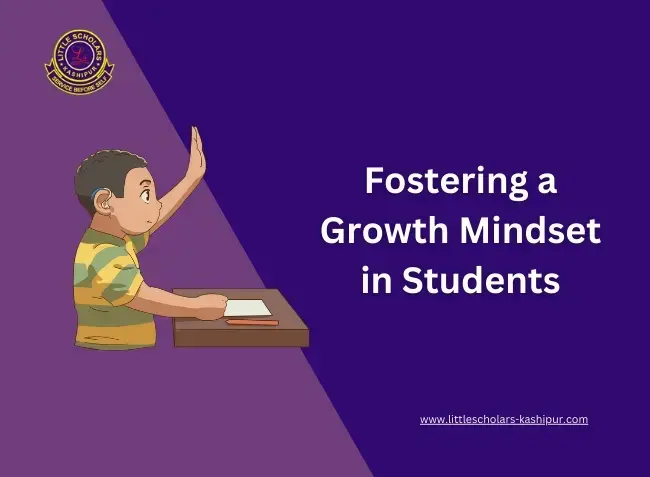In today's rapidly evolving educational landscape, the concept of a 'growth mindset' has become pivotal in shaping how students learn and develop. Coined by renowned psychologist Carol Dweck, a growth mindset refers to the belief that abilities and intelligence can be developed through dedication and hard work. This idea stands in stark contrast to a fixed mindset, where abilities are seen as static and unchangeable. Fostering a growth mindset in students is not just beneficial; it's essential for their academic and personal growth.
Understanding Growth Mindset
The foundation of a growth mindset lies in understanding that intelligence and abilities are not fixed traits. Dweck's research shows that students who believe their abilities can be developed outperform those who think their abilities are fixed. This mindset creates a love of learning and resilience essential for great accomplishment.
Strategies to Promote Growth Mindset in the Classroom
1. Use of Language:
The language educators use in the classroom can significantly influence students' mindsets. Phrases like "You haven't mastered this yet" or "Let's learn from this mistake" help instill a belief that effort and time can lead to improvement. This approach encourages students to view challenges as opportunities to grow rather than insurmountable obstacles.
2. Celebrating Efforts:
Focusing on effort rather than innate ability is key. Praising students for the hard work and strategies they employ, rather than their intelligence, encourages them to keep striving for improvement. It also helps them value the learning process itself, rather than just the result.
3. Encouraging Challenges:
Educators should encourage students to embrace challenges. When students tackle difficult tasks, they learn more, even if they fail initially. This approach helps to normalize struggle as part of the learning process.
4. Constructive Feedback:
Feedback should be aimed at helping students understand where they went wrong and how to improve. Instead of simply marking something as incorrect, it's more beneficial to provide guidance that leads to better understanding and growth.
From Seed to Plant: The Life Cycle of Plants: Read more
Role of Failure in Growth Mindset
Failure is not a setback but a stepping stone in the journey of learning. When students understand that failure is a part of learning, they are more likely to take risks and try new approaches. Educators play a crucial role in redefining failure as a 'not yet successful' state, which is fundamental in developing a resilient and persistent attitude toward learning.
Involving Parents and Guardians
The role of parents and guardians in fostering a growth mindset cannot be overstated. Home is where the foundation for lifelong attitudes toward learning is laid. Parents can reinforce the growth mindset by praising effort, discussing challenges openly, and encouraging curiosity and experimentation. Consistency between the messages students receive at home and school is key to embedding this mindset deeply.
Measuring the Impact of a Growth Mindset
Assessing the development of a growth mindset can be challenging as it's more qualitative than quantitative. However, educators can look for changes in how students approach learning and challenges, their resilience in the face of setbacks, and their willingness to engage in difficult tasks. Case studies in various educational settings have shown that classrooms that foster a growth mindset see improvements in student motivation, engagement, and academic performance.
Exploring Opportunities for Learning: The Importance of Technology in Education: Read more
Conclusion
Fostering a growth mindset in students is not just an educational strategy; it's a gift that prepares them for lifelong learning and adaptation. By emphasizing effort, embracing challenges, learning from mistakes, and seeing the potential for growth in all students, educators and parents can help shape a future generation that is resilient, curious, and capable of facing the challenges of an ever-changing world.




